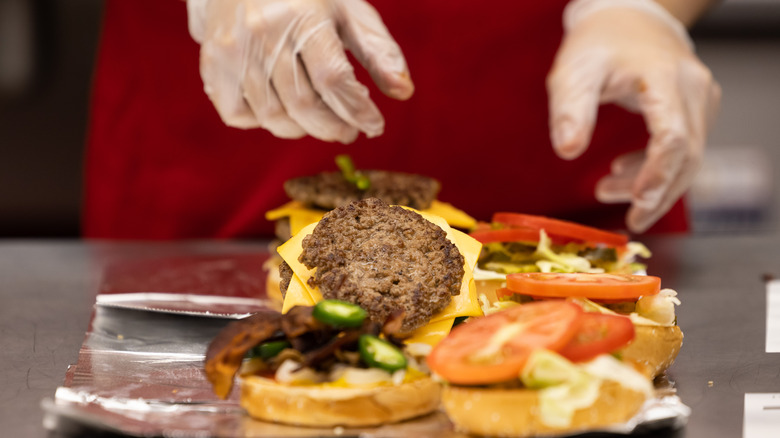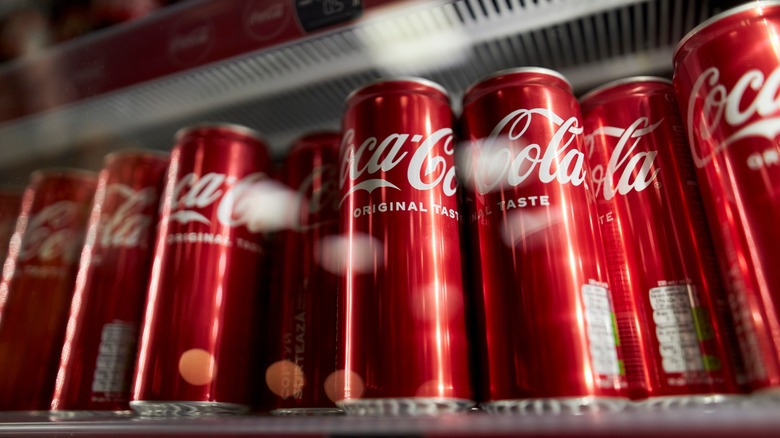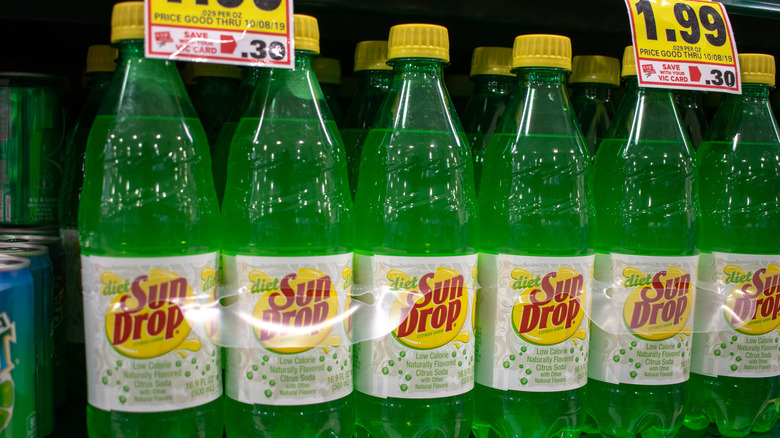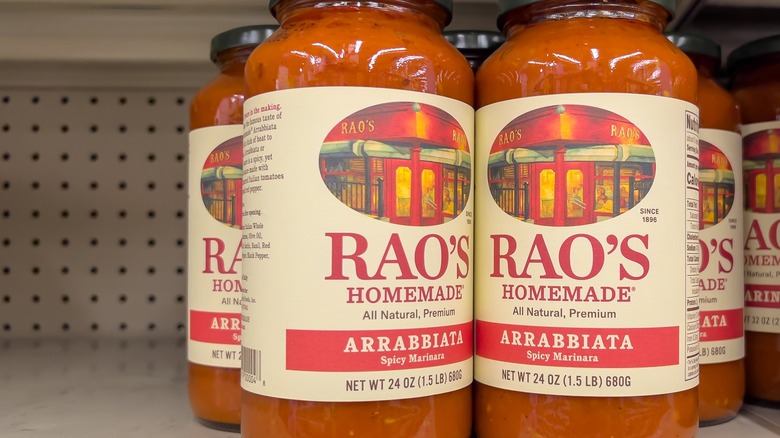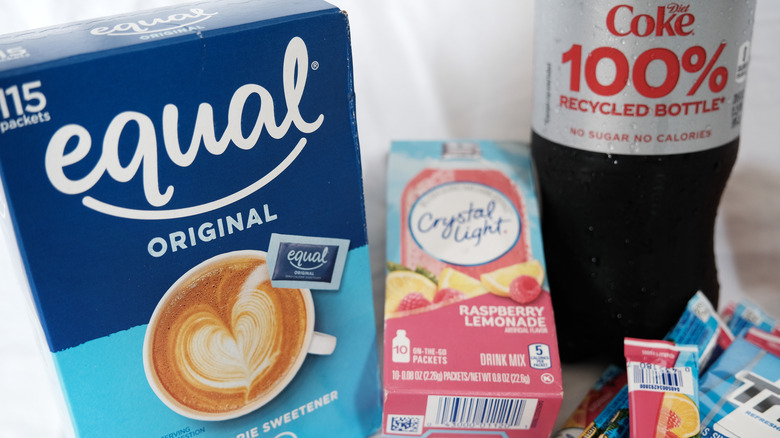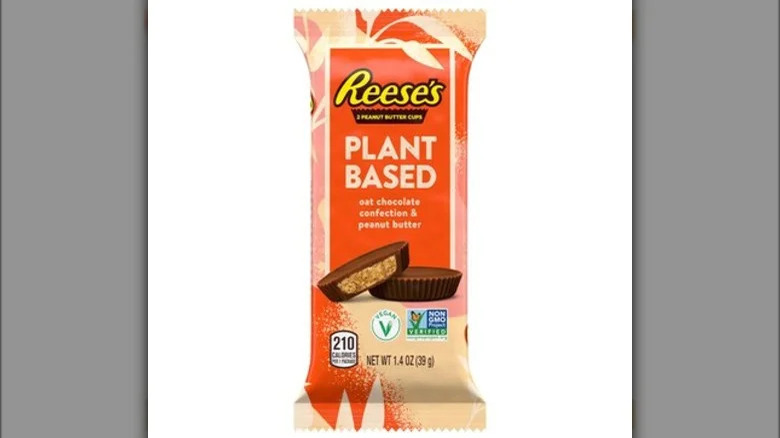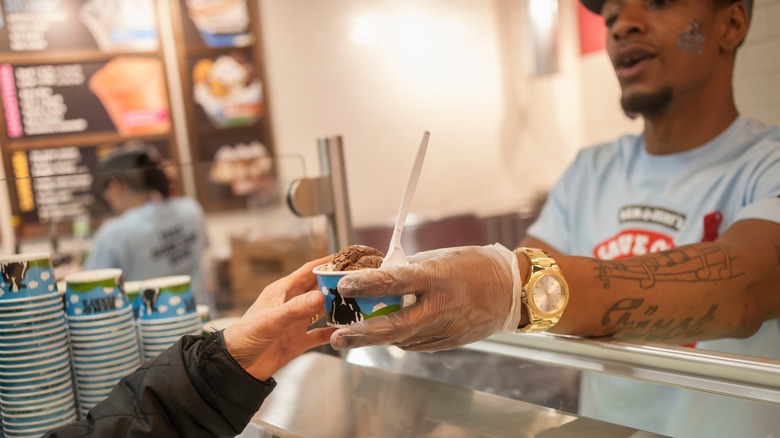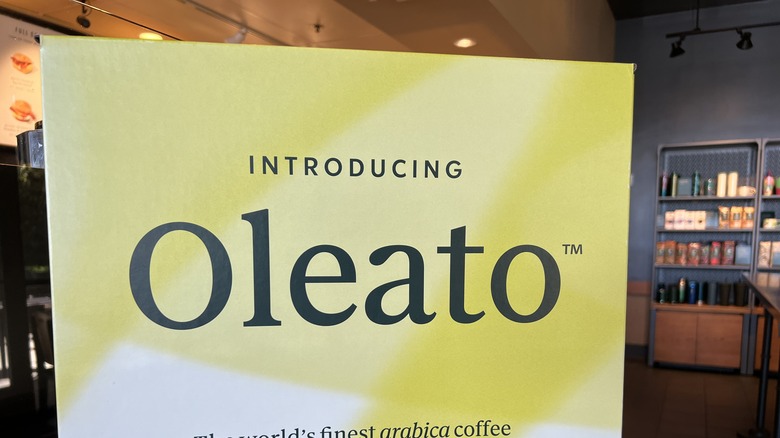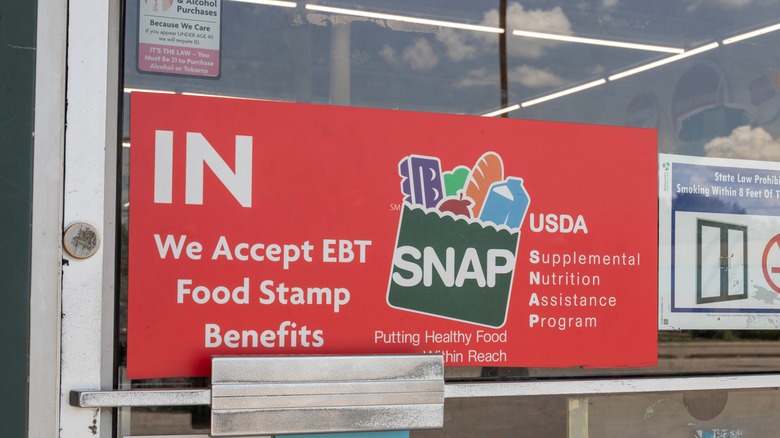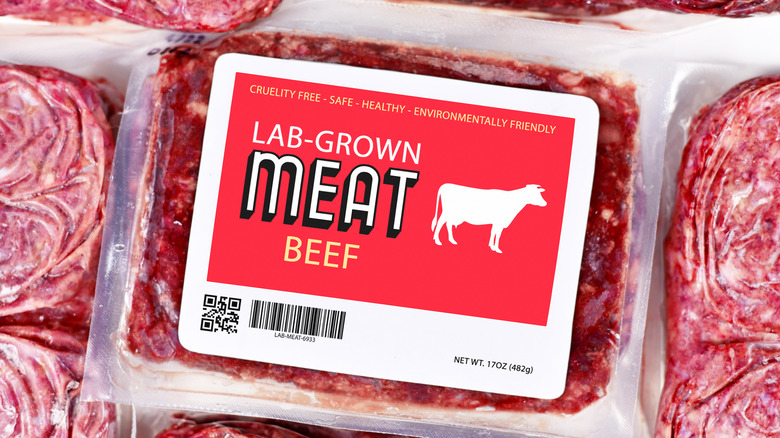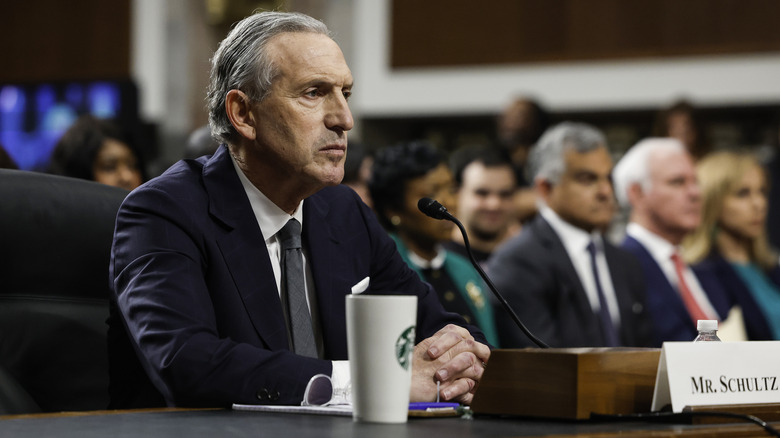The 20 Biggest Food Stories Of 2023
2023 was a big year for food and food media. This past year saw the introduction of new products, as well as the rise of new restaurants that found a groove in a post-pandemic world. Additionally, discussions around food safety, union negotiations in the food sector, and novel technologies (the type that may change the very idea of what 'food' is) were brought to light, providing a preview of what the face of the industry may look like in 2024.
Although we tend to think of these many stories as existing in a vacuum — for example, who cares if some chef across the country won some accolade for their restaurant? — the headlines often have a very real impact on countless individuals' lives. With that in mind, we've gathered some of the top news stories from the past year, including some with potential implications for each of us. Here are the 20 biggest food stories of 2023.
Fast food prices soared to record highs
The increasing cost of fast food has hit the wallets of many Americans who depend on it recently, with fast food prices rising 29% in the past four years. The cost of fast food increased by 6.2% in the last year alone, as reported by Restaurant Business, which was nearly double the overall inflation rate during that period. The price hike can likely be explained, in part, by businesses facing increased labor costs and supply chain adjustments following the COVID-19 pandemic.
Given the state of fast food prices, 52% of fast food shoppers reported feeling dismayed by the cost of their favorite combo in 2023. This may be why the number of transactions at fast food vendors has decreased, as fewer people appear to be eating at these establishments.
Coca-Cola had a major poisioning scare
In early November, an individual in Croatia was hospitalized after drinking Romerquelle Emotion Blueberry Pomegranate, a Coca-Cola-owned mineral water, as reported by Food Safety News. After 44 others in Croatia were examined for throat injuries upon consuming Coca-Cola products, as well, the brand temporarily removed Coca-Cola Original 0.5-liter plastic bottles and Romerquelle Emotion Blueberry Pomegranate 0.33-liter bottles from shelves to perform further testing.
Thankfully, Coca-Cola products were deemed safe in Croatia after the situation was investigated. Rather than a cause for concern (or a reason to avoid Coke), health experts believed the most severe injury was an isolated incident caused by contact with a degreaser or detergent, with Croatian Minister of Health Vili Beroš stating "there is no reason ... to panic or spread fear," according to Index.
The FDA took action to ban brominated vegetable oil in foods
In 2023, the FDA wanted to ban the use of brominated vegetable oil (BVO) in foods. The emulsifier is common in dozens of products, including diet sodas and citrus drinks (like Sun Drop), as well as Walmart brand products. While it's long been approved for use by the government, the bromine in this compound may be linked to potential health issues, posing a particular risk to the thyroid, per a 2022 study published in the Journal of Food and Chemical Toxicology.
Several companies, including Gatorade, Coca-Cola, and Pepsi, phased out BVO in the early 2010s. Though a final ruling is expected in 2024, the delay hasn't stopped states like California from banning BVO (among other chemicals) while waiting for a decision from the FDA.
FX's The Bear was renewed for a third season
2023 provided good news for fans of FX's "The Bear" — a show that follows the life of Carmy Berzatto (played by Jeremy Allen White) as he reopens his brother's restaurant in the heart of Chicago. FX announced the series would be back in business for Season 3 in 2024, leaving fans excited to see what happens next for the restaurant and its rag-tag staff.
The second season of "The Bear" was released in 2023 and reported rapid success among its audience. The show's first season received 13 Emmy nominations and a 100% critic rating on Rotten Tomatoes, while the second season reported an astonishing 99% critic rating. Viewers can't get enough of the realness of "The Bear" with many food service workers praising its authentic portrayal of restaurant life.
California raised the minumum wage for fast food workers to $20 per hour
In September, California governor Gavin Newsom signed a bill to raise the state's minimum wage for fast food workers beginning on April 1, 2024. The bill will increase the minimum wage for fast food employees to $20 per hour — a significant boost given the state's overall minimum wage sits at $15.50 per hour as of 2023.
In addition to the pay bump, the legislation also created a fast food council to help assess labor issues in the industry and set standards for working conditions within the fast food sector. The bill comes after years of strikes, activism, and efforts to raise the minimum wage for fast food workers above the previous average of $16.60 per hour.
France spends $200 million to destroy excess wine
France's move to spend $200 million to destroy surplus wine this year marks a dramatic shift in the country's wine economy. But faced with rapidly declining consumption, wineries across the Bordeaux region were forced to destroy 80 million gallons and convert the rest to cleaning products, sanitizers, and perfumes.
Experts largely blame the COVID-19 pandemic (and the shuttering of bars and restaurants in its wake) as a pivotal reason why the wine industry in France — and Europe as a whole — has struggled in recent years. Consequently, the French government began urging vineyards to convert their land to grow olives, instead, with more than 23,000 acres of grape vines in Bordeaux set to be discarded or reconfigured.
Campbell's Soup purchased Rao's pasta sauce
In August, Campbell's Soup announced it was purchasing Sovos Brands (and its famous Rao's pasta sauce) for nearly $3 billion. Rao's Homemade has established itself as an up-and-coming packaged pasta sauce brand in recent years, reporting nearly 38% market growth each year since 2017. But the acquisition alarmed fans of Rao's Homemade pasta sauces. Some consumers raised concerns regarding potential recipe or product changes (particularly considering the Campbell's-owned Prego has ranked poorly among other pasta sauce brands in the past).
However, Todd Lachman, CEO of Sovos Brands, thinks differently. As he noted in a press release announcing the acquisition, he's "confident in Campbell's ability to continue bringing (its) products to more households ... for years to come."
TikTok went wild over the Grimace Shake
Shouts of "Happy birthday, Grimace!" may not be what the McDonald's PR team intended when it released the purple-colored Grimace shake in June. But Grimace (and his shake) brought big sales growth to McDonald's this summer thanks to a social media trend — featuring users sipping the shake before experiencing laughter-inducing transformations or faux food poisoning — that was viewed billions of times on TikTok.
The shakes were released on June 12th to celebrate the absurd (though endearing) character's 52nd birthday. Not only was the trend successful at engaging older audiences (who remembered the McDonaldland characters from their youth), but younger audiences, as well. After all, even if some folks weren't old enough to remember retro Grimace, they were happy to sip a purple shake — then fake their demise for a few TikTok views.
The Michelin Guide added Atlanta restaurants to its guide for the first time
The famed restaurant review book Michelin Guide was set to highlight Atlanta for the first time in 2023. The Michelin Star program examines restaurants across five tenants, including products, flavors, cooking techniques, and consistency between visits. A restaurant is awarded between one and three stars, with the potential to receive additional awards for its craft.
While cities in states like California and Florida have already been featured in multiple guides for their top restaurants, Atlanta (along with some other Southern food epicenters) has remained largely unrepresented — until now. The move by Michelin is apt to translate to higher potential revenue from food tourism in Atlanta (though some chefs believe keeping up with the Michelin accreditation isn't always worth the hassle).
A report surfaced linking aspartame to cancer
2023 was a bad year for Diet Coke drinkers, as a leaked World Health Organization (WHO) report shared aspartame's "possibly" carcinogenic properties. The controversy surrounding this artificial sweetener isn't new, of course. It's been used in products like zero-calorie sweeteners, sugar-free gums, and diet sodas since it emerged on the food additive market in the 1980s.
The WHO's finalized report noted more evidence was needed to concretely link aspartame to the risk of cancer. Additionally, the Joint Expert Committee on Food Additives (JECFA) stated there's no reason to change the recommended daily limit of 40 milligrams per kilogram of body weight. An adult weighing 70 kilograms (154 pounds) would need to consume between 9 and 14 cans of diet soda to exceed this daily recommendation, after all.
New York state banned natural gas stoves
Your newly built New York penthouse will no longer feature a gas stove. New York officially banned natural gas stoves from being installed in new residential buildings after governor Kathy Hochul signed a measure in May. The decision came after several studies revealed natural gas stoves could potentially contribute to climate change, as well as worsening symptoms of asthma and respiratory issues in children, per Scientific American.
The ban on natural gas stoves does not apply to already-existing homes, and those with gas pipelines are not expected to have to undergo any major changes in the coming years. The ban only applies to residential developments, as well, which means restaurants, hospitals, and municipal buildings can still operate with gas appliances for the foreseeable future.
Chef Sean Sherman was named one of TIME's most influential people
Indigenous chef Sean Sherman was named one of TIME's most influential people of 2023. The member of the Ogalala Lakota Sioux tribe has long been recognized for his work in restoring indigenous food traditions and making the food of his people more widely accessible in the culinary scene. He founded the North American Traditional Indigenous Food Systems, which explores the ecological foodways of native cuisine and advocates for policy changes.
Sherman also operates The Sioux Chef, a catering and educational business in Minneapolis, Minnesota, as well as Owamni, a fine-dining restaurant that focuses on indigenous culinary traditions. "I am thrilled to accept this honor on behalf of my ancestors, who lived in balance with the natural world," Sherman shared with Minneapolis' WSAZ, adding "the cultural knowledge our ancestors left behind is a gift ... one I am committed to recovering and sharing."
Dunkin' removed the Dunkaccino from its menu
Dunkin' made a sad announcement in March when the brand informed the world it would bid farewell to the Dunkaccino. The Dunkaccino was a coffee and hot chocolate beverage (available in both hot and cold versions) that captured the hearts and tastebuds of its many fans since debuting around 2000.
Unfortunately, the company failed to provide a concrete reason for discontinuing the beverage. A Dunkin' spokesperson simply informed TODAY that "the Dunkaccino is retired for now," while also noting "there's always the chance for its return in the future." If you're unable to wait for the Dunkaccino to reemerge, though, one Reddit user suggested ordering a hot chocolate with a turbo shot to help fill the void in the meantime.
Hershey's released two new vegan products
2023 was a good year for vegans. Hershey introduced vegan chocolate bars and Reese's cups to its lineup, sparking joy amongst plant-based eaters (and those with dairy intolerances). The candies are made with oat milk and were designed to "create more moments of goodness" for customers, as Hershey brand manager Teal Liu mentioned in a press release.
The vegan Reese's cups first hit shelves in March, while the dark chocolate oat milk with almonds and sea salt appeared in April. Since the reaction has been positive (so far), other companies have made efforts to release vegan chocolates to an awaiting consumer base, as well. Lindt and Cadbury have begun selling vegan versions of its candy in the U.K., though it's unclear if these treats will make their way across the pond any time soon.
Ben & Jerry's workers unionized for the first time
The O.G. Ben & Jerry's scoop shop in Burlington, Vermont made history this year when employees at the ice cream company's first-ever location voted to unionize as part of Workers United. After managers removed the tip jar from the counter on Free Cone Day, workers sent a prompt letter to the company's founders: Jerry Greenfield and Ben Cohen.
The letter, which was shared by The Washington Post, stated the employees "have come to embody Ben & Jerry's slogan of 'peace, love, and ice cream'" while adding "a union will ensure that present and future scoopers have irrefutable rights." The unanimous movement to unionize also came after workers reported being tasked with duties beyond their role and having to manage difficult situations without adequate training or compensation.
Tabitha Brown introduced a new partnership with Target
Tabitha Brown rose to internet fame with her videos on vegan meal hacks. In 2023, the entrepreneur and plant-based food icon took her image a step further, as Brown brought a line of vegan grocery products to Target locations across the country. The new brand came after her collaboration with McCormick's and the release of her vegan cooking competition show "It's CompliPlated" on Food Network.
The line features 40 vegan products — including sausages, imitation beef patties, chili, potato salad, and ravioli — and expands on her existing clothing and home decor line at Target. With Brown's emergence as a food media mogul continuing this year, we're excited to see more inspirational content from the woman lovingly nicknamed "America's Mom."
Starbucks rolled out its olive oil-infused coffee
While Starbucks is known for its quirky beverages, the brand took things even further with its new Oleato beverage. An olive oil-infused coffee released by Starbucks in 2023, the unusual pairing was inspired by then-CEO Howard Shultz's trip to Milan, Italy. After his return, Shultz decided to marry the famous Mediterranean ingredient of olive oil with the region's beloved morning cup of coffee.
The initial Oleato lineup featured three beverages: a latte, a Golden Foam cold brew, and an iced shaken espresso. The cold beverages feature oil infused into the dairy products, while the latte contains oil poured directly into the coffee. Customers can also add oil to an existing beverage or top their cold ones with the Golden Foam. As for us? We'll just take a cappuccino — sans olive oil.
Decreasing SNAP benefits impacted Americans across the country
Federal Supplemental Nutrition Assistance Program (SNAP) benefits were a lifeline for many Americans during the COVID-19 pandemic. But with the public now largely viewing the pandemic in the rearview mirror, numerous emergency measures were ended in 2023 — with many folks impacted by the resulting decrease in SNAP benefits.
This decrease sparked understandable worry among families. Nearly 16 million Americans found themselves affected by the reduction of SNAP benefits previously available under emergency provisions — with some receiving several hundred dollars less in assistance each month.
Unfortunately, the limiting of these food benefits — which allows Americans the ability to purchase food at grocery stores, corner stores, and even farmer's markets — coincides with some of the highest prices for groceries ever. In fact, per a CBS report, it's estimated that grocery prices could be 20% higher by the end of 2023 than just two years earlier.
Italy banned lab-grown meat
Lab-grown meat products have been heralded by some as a way to satisfy consumer cravings for protein without the negative environmental and ethical consequences of rearing animals. But that's not the case for one European country, as Italy announced it would ban lab-produced food to protect its culinary heritage in March. Prime Minister Giorgia Meloni's administration approved the bill, which the Italian parliament passed in November.
The legislation prohibits the production of lab-grown food and livestock feeds. The measure purports to both serve and protect the country's farmers and culinary traditions, with steep penalties reserved for any companies in violation. Unsurprisingly, the decision has angered environmental and animal rights activists, who cited that the short-sighted ban would harm Italian businesses looking to compete in the global lab-grown food marketplace.
Starbucks CEO stepped down amid unionization efforts
On March 20, Howard Shultz, CEO of Starbucks, announced he would be stepping down from his position — 10 days earlier than his intended step-down date of April 1. Succeeded as CEO by Laxman Narasimhan, Shultz continued to sit on the company's Board of Directors and advised Narasimham in leading the company forward.
During Shultz's third stint as Starbucks CEO, he faced controversy amid the ongoing unionization efforts of company employees. Schulz has had harsh words for baristas in favor of unions in the past, going so far as to travel the nation to discourage baristas from unionizing in 2022. Additionally, Shultz was required to testify in front of the Senate Health, Education, Labor, and Pensions Committee on March 29 to discuss Starbucks' attempts to block the formation of unions.

